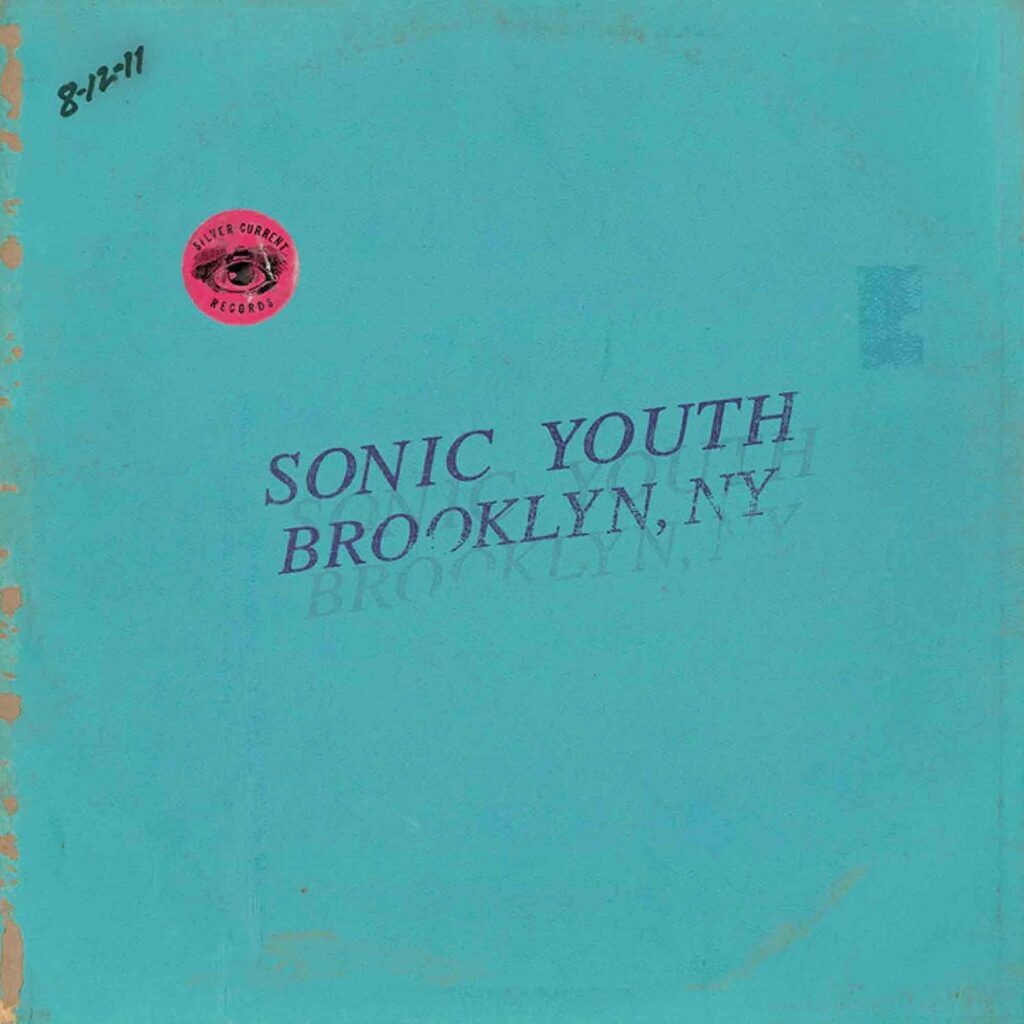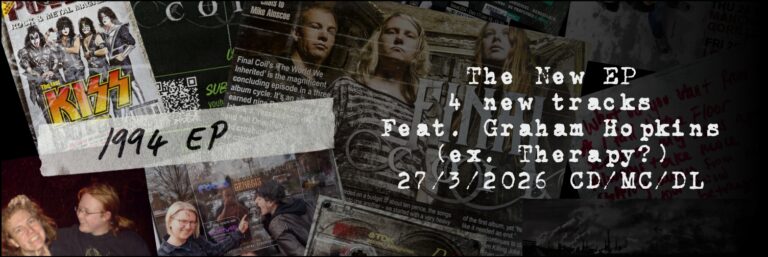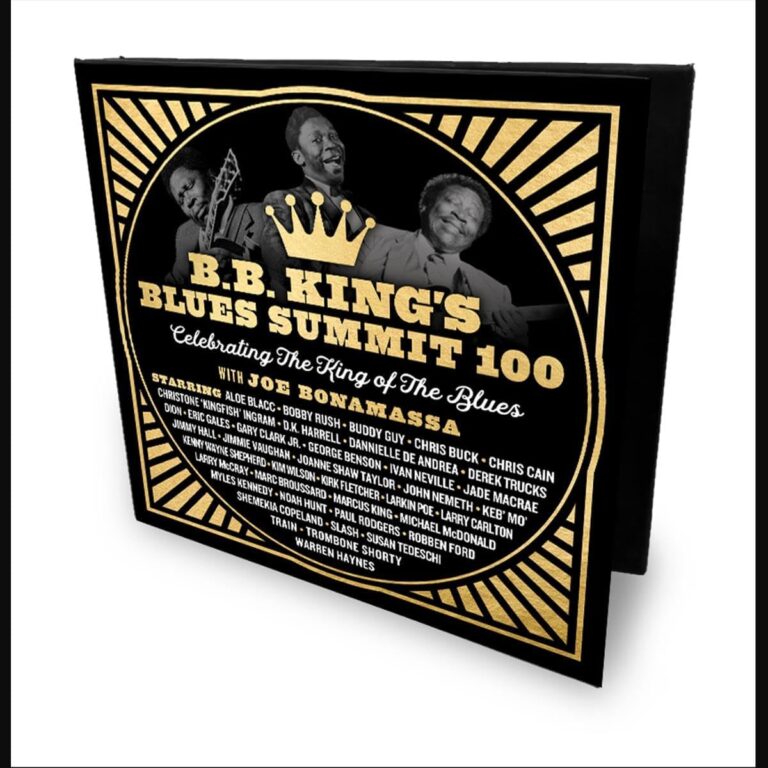
One of the most original bands ever to grace the stage, seemingly in spite of their staunch unwillingness to compromise, Sonic Youth attracted legions of fans and created an untouchable body of work over the course of three decades. Their ignominious end, predominantly the result of the well-documented personal issues between Thurston Moore and Kim Gordon, occurred with little fanfare, the band initially going on hiatus before various members made rather stronger statements about the band’s possible future, leaving fans quietly bereft.
Yet, while the band didn’t know that they were heading out on their final tour in 2011, the shows were both cathartic and chaotic. In her memoire, Kim Gordon recalls how the band, unwilling to voice their concerns and caught between “mom and dad”, sat uncomfortably through meals, while the final date (November in Sáo Paulo) saw Kim unable to even look in Thurston’s direction – bravely maintaining a façade of untouchable cool, even as her world disintegrated around her. In the August of that year, however, the tension between the pair was ill-defined, the band uncertain as to what the problem was, or even if there was a problem. As a result, while there’s a certain edge to the performance documented here, it’s difficult to discern how much of this is interpretation through hindsight, and how much actually existed on the day.
Regardless of any underlying issues, what is indisputable is that the band’s final US show features an uncharacteristically wide selection of songs, drawing from across the band’s extensive back catalogue and including tracks that, in some cases, had not been aired for many years. As a result, this special release not only provides a live performance that crackles with energy, but also a genuine gift to long-term fans who may never have heard these tracks aired live before.
It opens with the brilliant Brave Men Run in My Family, a Kim-led number from Bad Moon Rising, that sees the band struggling to hold everything in check. It’s a gruelling performance, crackling with madcap energy, the tension finally released as the band plough into a ferocious Death Valley ’69, although Kim resists the temptation to unleash the harrowing scream that opens the recorded version. If Kotton Krown stands as a mini oasis of calm in the midst of it all, a splenetic Kill Yr Idols further adds to the mounting sense that the band are in a darker place than any of their post-Washing Machine albums alluded to, the feedback and swirling guitars invoking vertigo in the unwary.
The atmosphere lightens a touch as Lee Ranaldo takes the mic, speaking to the crowd and kicking the band into the distorted beat poetry of Eric’s Trip, a highlight of Daydream Nation and also star of the Dirty Boots EP. However, a bigger surprise is waiting in the wings, as The Eternal’s Sacred Trickster is rattled through with a ramshackle rage that pitches it closer to the art punk of Goo than the pastoral beauty of Murray Street, especially when Kim snarls “what’s it like to be a girl in a band”, with startling venom. Sticking with The Eternal, we get Calming the Snake, another Kim number, which proves equally blistering, the band’s unhinged performance leaving the listener somewhat breathless, even at the remove of listening at home.
Offeringan introduction to the next track, Thurston jokes about going super deep into the band’s back catalogue, before leading the band into a version of Starfield Road that cleaves closer to the relentless industrial of early Swans than the version found on Experimental Jet Set, Trash and No Star. Then there’s an eeri pairing from Bad Moon Rising, the darkly atmospheric I Love Her All the Time, giving way to the creeping horror of a feedback-strewn Ghost Bitch, a mid-set highlight for all the sonic discomfort this lengthy trip into the past invokes.
Taking things back down a notch, Thurston dedicates Tom Violence to an audience member (to general cheers), while Lee Ranaldo’s presence at the microphone for What We Know also serves as a moderating influence on the band’s performance. However, it doesn’t last, and the already-disturbing Drunken Butterfly takes on a whole new undercurrent, as Kim lunges at the lyric “I love you, I love you, I love you, what’s your name?” Given the underlying meaning of the song, it was always an uncomfortable piece, but knowing the tensions that existed in the band at the time, it takes on a darker dimension here. Similarly, Flower, which exhorts the listener to “support the power of women” over a backdrop of feral noise, feels like a determined statement of empowerment made by someone, if not hanging over the edge of an abyss, at least teetering on its edge.
The band pull things back from the brink for a taut, energetic take on Sugar Kane, while the poppy and rarely played Psychic Hearts (from Thurston’s 1995 solo album of the same name) fits right in. It wrongfoots the listener, however, for the set ends with the eleven-minute-plus sonic whiteout of Confusion Is Sex’s Inhuman. A murderously brutal finale, like Swans, it explores the limits of endurance. Yet, also like Swans, the overwhelming emotion is not aggression, but ecstasy, and it comes as no surprise to read that the band left the stage feeling that they had done an outstanding job, tragically unaware that this would be the band’s last ever show on US soil.
Hindsight is a bitch. It’s difficult to listen to this astounding show without imbuing tracks with meaning, and yet the band play amazingly. Airing an array of deep cuts, many of which hadn’t been played for years, was a generous gesture to the band’s home-town audience and the result is an epic show, packed with sonic goodness. That Sonic Youth should split up in so mundane a fashion is a tragedy, but the work they left behind is nothing short of a minor miracle. A thunderous trip through one of the most invigorating catalogues in modern music history, Live in Brooklyn 2011 is the best live representation of Sonic youth yet catalogued, and it’s an essential addition to any fan’s collection. 10/10



